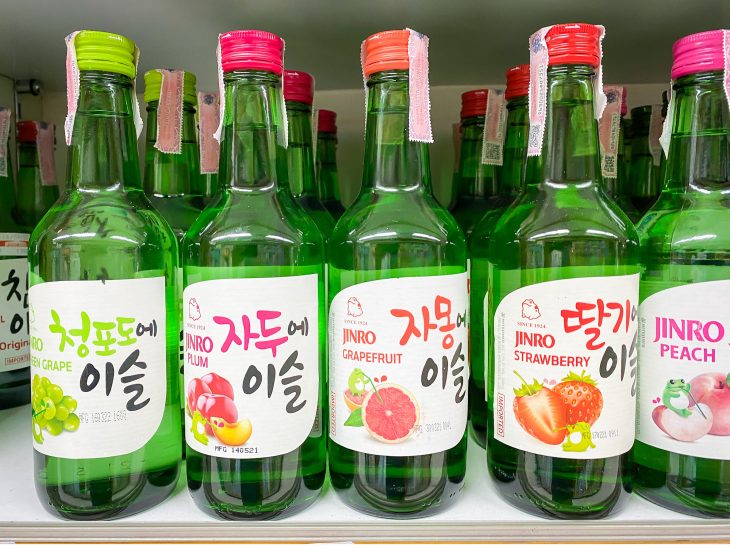
Soju, a popular alcoholic beverage originating from Korea, has gained international recognition for its unique taste and cultural significance. Beyond its refreshing flavors, it is essential to understand the nutritional aspects of this spirit. In this article, we delve into the 19 Soju nutrition facts that shed light on its health benefits and considerations. Whether you’re an avid Soju drinker or simply curious about this fascinating drink, read on to discover insights into its composition and its impact on your well-being.
Soju: A Brief Introduction
Soju is a distilled spirit traditionally made from rice, wheat, or barley. Its alcohol content usually ranges between 16% and 53%, making it a popular choice for those seeking a lighter alcoholic beverage. Although Soju is often enjoyed in social gatherings, it’s important to consume it in moderation to fully appreciate its flavors while considering your overall health.
Ingredients of Soju
Soju’s ingredients play a crucial role in its nutritional composition. Traditional Soju is primarily made from rice, water, and nuruk (a fermentation starter). Modern variations may incorporate other ingredients, such as barley, sweet potatoes, or tapioca. The diversity of ingredients contributes to the unique flavors and nutritional characteristics of different Soju types.
Calories in Soju
One of the primary considerations when it comes to Soju is its caloric content. On average, a standard 1.5-ounce (44 ml) serving of Soju contains approximately 65-70 calories. However, it’s essential to note that caloric content may vary depending on the brand and type of Soju consumed. Be mindful of your intake, as excessive consumption can lead to weight gain and other health complications.
Carbohydrates and Sugar Content
Soju is relatively low in carbohydrates and sugar compared to other alcoholic beverages. A typical serving of Soju contains less than 1 gram of carbohydrates and sugar. This makes Soju an appealing option for those watching their sugar intake or following a low-carbohydrate diet.
Fat and Protein Content
Soju is a spirit that contains virtually no fat or protein. If you’re looking for an alcoholic beverage with minimal impact on your fat and protein intake, Soju can be a suitable choice. However, it’s important to remember that Soju should be consumed responsibly and as part of a balanced diet.
Soju and Vitamins
While Soju is not a significant source of vitamins, it does contain small amounts of certain B vitamins. These vitamins play essential roles in energy production and maintaining a healthy nervous system. However, the vitamin content in Soju is relatively low, so it should not be relied upon as a primary source of these nutrients.

Antioxidants in Soju
Soju, particularly those made from grains, can contain antioxidants. Antioxidants help combat oxidative stress in the body, which is associated with various health conditions. However, it’s important to note that excessive alcohol consumption can negate the potential benefits of antioxidants. Moderation is key to fully enjoying the potential health benefits of Soju.
Soju and Resveratrol
Resveratrol, a compound known for its potential health benefits, is present in Soju. This compound is primarily found in the skins of grapes and has been associated with cardiovascular health. While Soju contains lower levels of resveratrol compared to red wine, it can still contribute to your overall intake of this beneficial compound.
Sodium and Potassium Levels
Soju generally has low sodium and potassium content, making it a favorable choice for individuals on low-sodium or low-potassium diets. However, it’s important to note that excessive consumption of Soju can lead to dehydration, so it’s crucial to balance your alcohol intake with proper hydration.
Soju and Hangovers
While Soju is considered a lighter alcoholic beverage, excessive consumption can still result in hangovers. Hangovers are primarily caused by dehydration and the byproducts of alcohol metabolism. To minimize the likelihood of a hangover, it’s important to drink responsibly, hydrate adequately, and avoid excessive Soju consumption.
Soju and Alcohol Content
The alcohol content of Soju can vary significantly depending on the brand and type. Traditional Soju typically has an alcohol content between 16% and 25%, while modern variations can reach up to 53%. It’s crucial to be aware of the alcohol content in the Soju you consume to ensure responsible drinking and avoid potential health risks.
Soju and Allergens
Individuals with sensitivities or allergies to specific grains, such as rice, wheat, or barley, should exercise caution when consuming Soju. It’s advisable to read product labels or consult with the manufacturer to confirm the absence of allergenic ingredients.

Soju and Digestion
Soju, when consumed in moderation, may stimulate digestion. However, excessive alcohol intake can have a negative impact on digestive health, leading to issues such as acid reflux, stomach ulcers, and digestive discomfort. As with any alcoholic beverage, moderation is key to maintaining a healthy digestive system.
Soju and Food Pairings
Soju is often enjoyed with a variety of Korean dishes and snacks. Its versatility allows for exciting food pairings, enhancing the overall dining experience. Some popular Soju pairings include Korean barbecue, kimchi, seafood, and savory pancakes. Experimenting with different food pairings can elevate your Soju-drinking experience.
Soju and Moderation
It cannot be stressed enough that moderation is vital when consuming Soju or any alcoholic beverage. Excessive alcohol consumption can lead to a range of health issues, including liver damage, addiction, and impaired judgment. To enjoy Soju responsibly, limit your intake, be aware of your alcohol tolerance, and prioritize your well-being.
Conclusion
Soju, a traditional Korean spirit, offers a unique drinking experience with various flavors and nutritional considerations. Understanding the 19 Soju nutrition facts discussed in this article allows you to make informed choices and enjoy Soju responsibly. Remember to savor Soju in moderation, consider its impact on your overall health, and pair it with delicious Korean dishes for a truly enjoyable experience.
Frequently Asked Questions (FAQs)
Is Soju gluten-free?
While traditional Soju is made from grains that contain gluten, there are gluten-free Soju options available in the market. Look for Soju brands that use gluten-free grains, such as sweet potatoes or tapioca, to ensure a gluten-free experience.
Can Soju be enjoyed by individuals with diabetes?
Individuals with diabetes should be cautious when consuming Soju due to its alcohol and sugar content. It’s important to consult with a healthcare professional to determine the suitability and moderation of alcohol intake based on individual health conditions.
Does Soju have a distinct flavor?
Soju’s flavor can vary depending on the ingredients used during the distillation process. Traditional Soju often has a smooth, clean taste with subtle hints of sweetness, while flavored variations can offer a range of taste profiles, including fruity or herbal notes.
Can Soju be mixed with other beverages?
Soju’s versatility makes it an excellent base for a variety of cocktails. It can be mixed with fruit juices, soda, or flavored syrups to create refreshing and creative drinks. However, be mindful of the overall alcohol content and drink responsibly.
What is the recommended serving size of Soju?
The recommended serving size of Soju is typically 1.5 ounces (44 ml). It’s crucial to drink in moderation and be aware of your alcohol tolerance to avoid potential health risks.
Remember, always drink responsibly and be mindful of your alcohol consumption to prioritize your well-being and enjoy Soju in a safe and enjoyable manner.
Was this page helpful?
Our commitment to delivering trustworthy and engaging content is at the heart of what we do. Each fact on our site is contributed by real users like you, bringing a wealth of diverse insights and information. To ensure the highest standards of accuracy and reliability, our dedicated editors meticulously review each submission. This process guarantees that the facts we share are not only fascinating but also credible. Trust in our commitment to quality and authenticity as you explore and learn with us.
